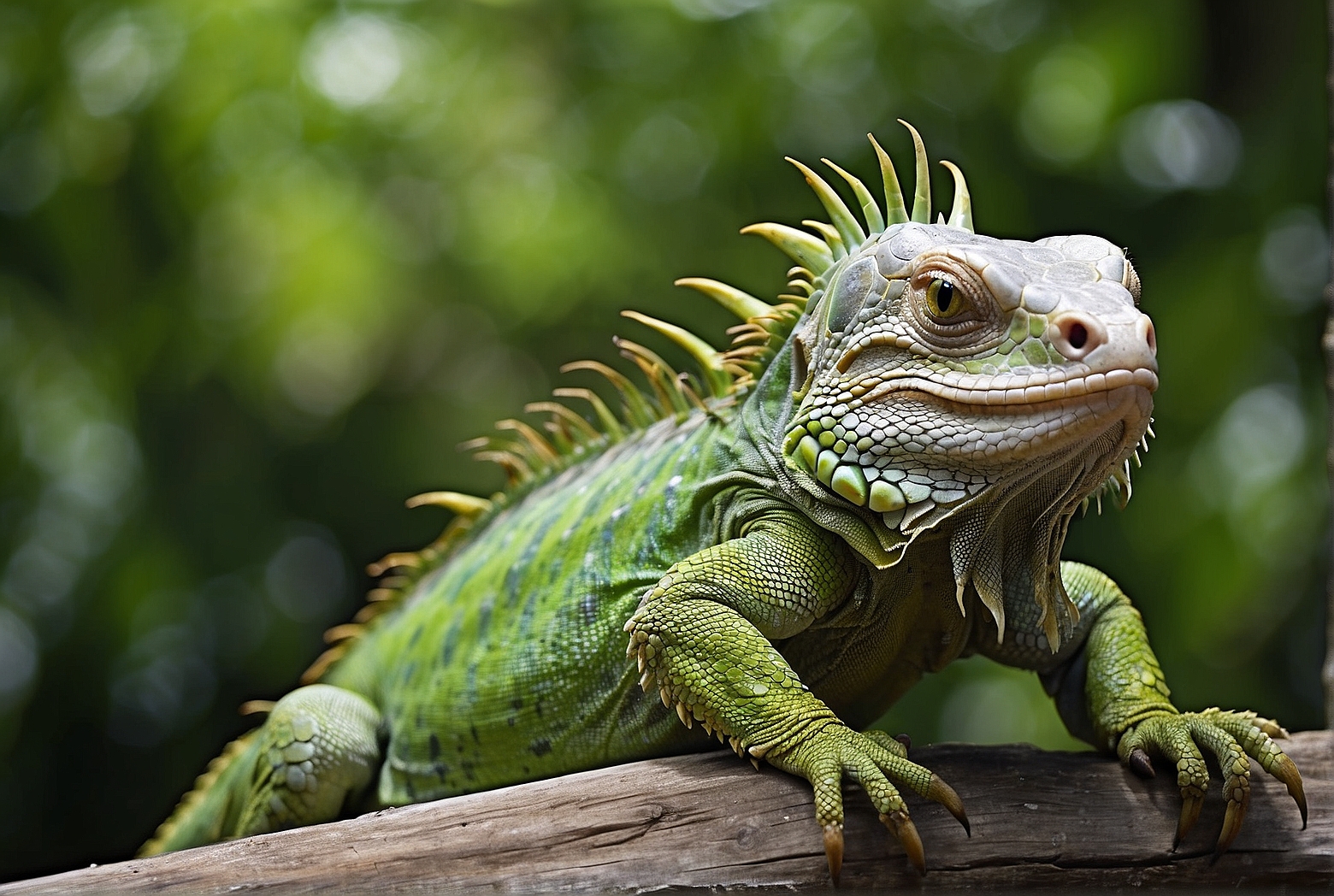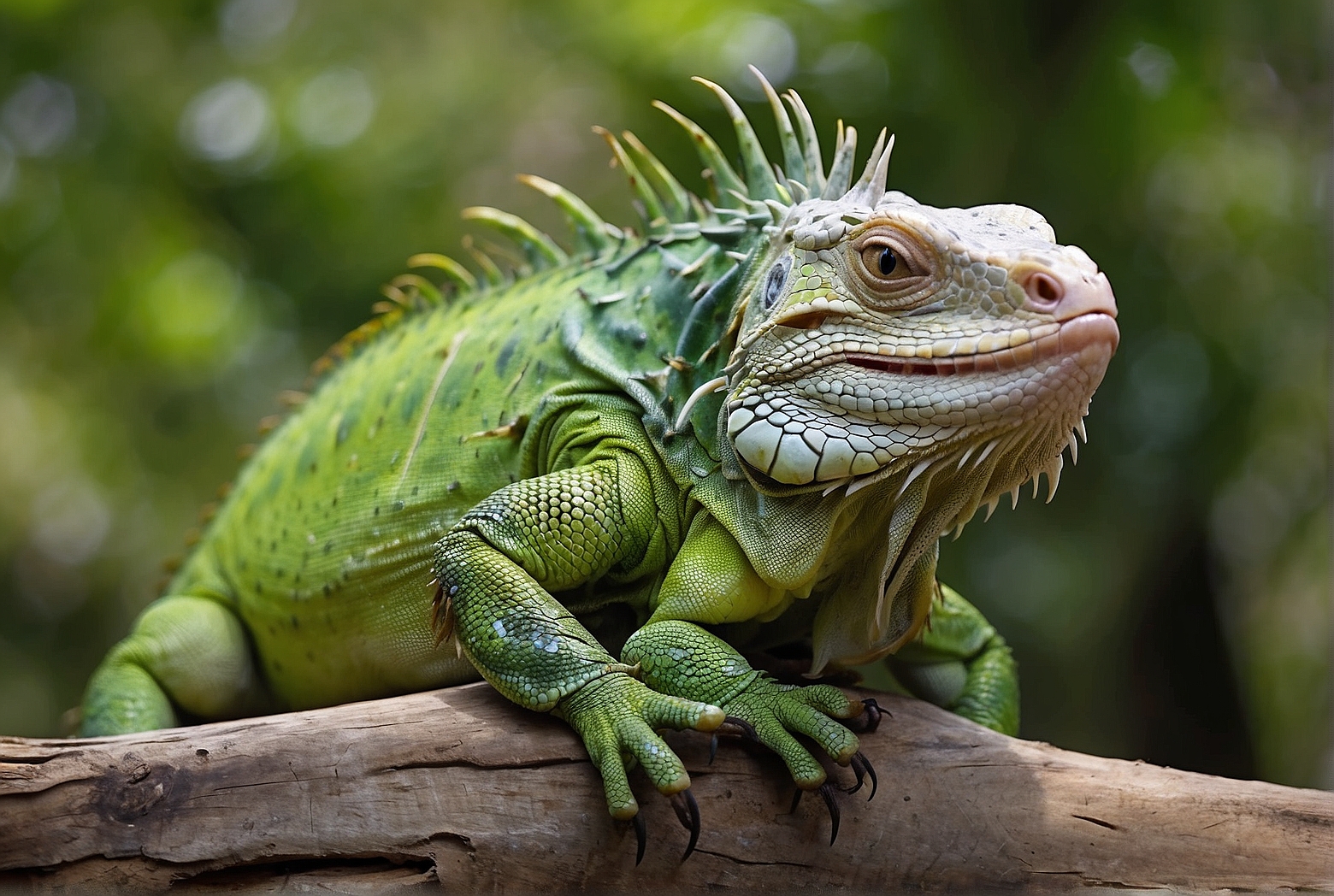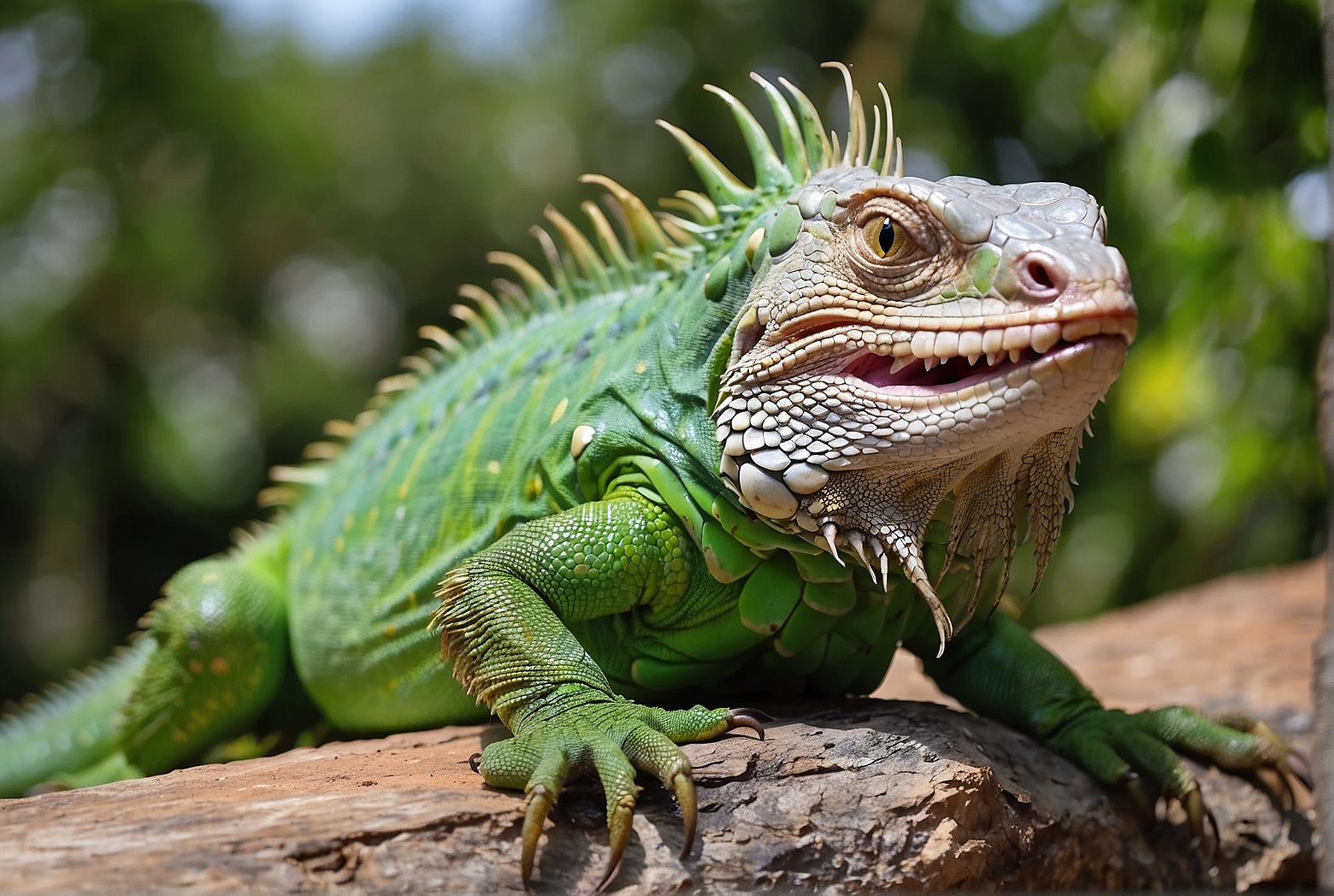Have you ever wondered what green iguanas like to eat? In this article, we will explore the fascinating diet of these beautiful reptiles. Green iguanas are herbivores, but their diet consists of more than just leafy greens. We will delve into their favorite foods, including fruits, vegetables, and even flowers. So, if you’re curious about what keeps these magnificent creatures fueled and satisfied, read on to discover the delicious world of the green iguana’s diet.
Overview of Green Iguanas’ Diet
Green iguanas are known for their herbivorous diet, which means they primarily feed on plant-based foods. Their diet is diverse and includes a variety of leaves, flowers, fruits, and vegetables. By consuming these foods, green iguanas obtain the necessary nutrients and energy for their daily activities.
Major Food Choices
Leaves
Leaves make up a significant portion of a green iguana’s diet. They particularly enjoy consuming leafy greens such as collard greens, kale, and dandelion greens. These leaves provide essential nutrients, including vitamins A and C, calcium, and fiber. It is important to ensure that the leaves are fresh and free from pesticides or other harmful chemicals.
Flowers
Flowers also play an important role in the diet of green iguanas. They are a rich source of nectar and pollen, which provide essential vitamins and minerals. Flowers such as hibiscus, roses, and daisies can be offered as a treat to enhance the nutritional variety in their diet.
Fruits
Green iguanas have a preference for fruits due to their high sugar content. Fruits like bananas, strawberries, and mangos can be included in their diet as occasional treats. These fruits not only provide natural sugars for energy but also contain antioxidants that support their overall health.
Vegetables
Vegetables are another essential component of a green iguana’s diet. Dark leafy greens like spinach, Swiss chard, and mustard greens are particularly beneficial. They are rich in calcium, iron, and other vital nutrients. Additionally, vegetables such as squash and zucchini can be added to provide variety and additional vitamins.

Importance of Leafy Greens
High in Fiber and Nutrients
Leafy greens are a vital part of a green iguana’s diet as they are high in fiber and essential nutrients. Fiber aids in digestion and prevents constipation, while nutrients like calcium and vitamins contribute to overall health and well-being. Including a variety of leafy greens ensures that green iguanas receive the necessary dietary components for proper growth and development.
Simulating Natural Habitat
In the wild, green iguanas have access to a diverse range of plant species. By offering a variety of leafy greens, owners can simulate their natural habitat and provide a stimulating environment for the iguanas. This not only enriches their diet but also promotes their overall mental and physical well-being.
Benefits of Flowers in their Diet
Rich Source of Nectar and Pollen
Flowers are an excellent addition to a green iguana’s diet due to their rich sources of nectar and pollen. Nectar provides natural sugars for energy, while pollen contains essential vitamins and minerals. Adding flowers to their diet can provide a nutrient boost while introducing novel tastes and textures.
Contains Essential Vitamins and Minerals
Flowers offer a variety of essential vitamins and minerals that contribute to a green iguana’s overall health. For example, hibiscus flowers are high in vitamin C, which supports the immune system, while roses provide vitamin A, which is crucial for maintaining healthy eyesight. By incorporating flowers into their diet, green iguanas can benefit from a broader range of nutrients.
Preference for Fruits
High Sugar Content
Green iguanas have a natural inclination towards fruits due to their high sugar content. However, it’s important to offer fruits in moderation to prevent excessive sugar intake. Fruits should be treated as occasional snacks rather than a significant portion of their daily diet.
Source of Antioxidants
Fruits, despite their sugar content, offer valuable antioxidants that support the overall health of green iguanas. These antioxidants help combat free radicals and reduce inflammation. Including antioxidant-rich fruits like berries and oranges can contribute to the longevity and vitality of these captivating reptiles.

Recommended Vegetables for Green Iguanas
Dark Leafy Greens
Dark leafy greens should form a substantial part of a green iguana’s vegetable intake. Options such as kale, collard greens, and dandelion greens are excellent choices as they are packed with nutrients like calcium and vitamins. These vegetables contribute to strong bones, healthy skin, and proper organ function.
Squash and Zucchini
Squash and zucchini are soft vegetables that provide variety and important nutrients like vitamin C and potassium. These vegetables are easily digestible for green iguanas and can be offered in small diced portions or as grated toppings on their regular food.
Bell Peppers
Bell peppers add color, flavor, and nutritional value to a green iguana’s diet. They are a rich source of vitamin C, vitamin A, and antioxidants. Including bell peppers, specifically red and yellow varieties, ensures a well-rounded diet for these reptiles.
Supplementation for a Balanced Diet
While a green iguana’s diet mainly consists of plant-based foods, supplementation plays a crucial role in ensuring a balanced and nutritious diet.
Calcium and Vitamin D3
Green iguanas require adequate amounts of calcium for proper bone development and overall health. Calcium supplementation, in the form of powder or cuttlebone, should be provided alongside their regular diet. Vitamin D3 is also important as it aids in calcium absorption. Ensuring that green iguanas receive sufficient exposure to natural sunlight or appropriate UVB lighting is essential for synthesizing vitamin D3.
Vitamin C
Vitamin C is an important vitamin that helps boost the immune system and overall health. While green iguanas generate their own vitamin C, supplementation in the form of fresh fruits or vitamin C supplements can be beneficial, especially during times of stress or illness.
Protein and Amino Acids
While plant-based foods fulfill most of a green iguana’s nutritional needs, incorporating a small amount of high-quality protein can be beneficial. Offer protein sources such as cooked eggs, tofu, or high-quality vegetarian pet food. Additionally, offering a variety of plant-based proteins like lentils or quinoa can help ensure green iguanas receive essential amino acids.
Avoidance of Animal-Based Foods
Green iguanas have an inadequate digestive system to efficiently process animal-based foods. Feeding them animal products such as meat or dairy can lead to digestive issues and potentially pose health risks. It is best to strictly adhere to a plant-based diet to ensure the well-being and longevity of these fascinating reptiles.
Dietary Requirements Based on Age and Size
The dietary requirements of green iguanas vary depending on their age and size. Younger iguanas require more frequent feedings, typically once or twice a day. As they grow older, their feeding frequency can be reduced to once every other day. The proportions of different food types should also be adjusted accordingly, ensuring a balanced ratio of leaves, flowers, fruits, and vegetables.
Feeding Strategies for Captive Green Iguanas
Fresh Food Availability
One of the essential aspects of feeding captive green iguanas is ensuring fresh food availability. Opt for organic varieties of fruits, vegetables, and greens whenever possible. Remove any uneaten food promptly to maintain cleanliness and prevent spoilage.
Feeding Techniques
Green iguanas have specific feeding behaviors that should be taken into consideration. Offer food at various heights and present it in different ways, such as in whole pieces or shredded. This encourages natural foraging behavior and helps prevent boredom or depression.
In conclusion, a green iguana’s diet is primarily herbivorous, comprising leaves, flowers, fruits, and vegetables. By providing a diverse range of fresh and nutritious plant-based foods, owners can ensure the health, vitality, and well-being of these captivating reptiles. Remember to follow appropriate feeding strategies and consult a reptile veterinarian for specific dietary recommendations based on the age and size of your green iguana.
